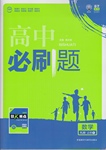题目内容
完形填空(共20小题;每小题2分,满分40分)
It’s good to make mistakes, and here is why.
First of all, mistakes are a clear 36 that you are trying new things.It’s always 37 to try new things because when you are trying new things you are 38 .If you never try anything new, how can you 39 ? The simple answer is “You can’t”.With few exceptions, every single detail of development is the 40 of someone trying something new.
When you are making mistakes, you are 41 .Edison failed 10,000 times before he 42 the light bulb.When asked how it felt to 43 that many times, he said that he hadn’t failed 10,000 times, but rather had learned 10,000 things that didn’t 44 .
Finally, when you make a mistake you are much 45 to success.Why ?
When all is done, you will have tried some number of things before you succeed. 46 you make a mistake you eliminate (排除) one of those things and are one step closer.
But this all doesn’t mean that you should go ahead 47 considering the consequences of a mistake.Quite the contrary, when you try something new, you 48 be willing to set some reasonable limits, so that in the event that it doesn’t 49 the way you want it to, you will be in a position to try again.
We all have 50 resources in time and money, so don’t blow them all on one 51 to a problem.Realize that it probably won’t be perfect the first time, and allocate (分配) these resources properly so you can learn, 52 corrections, and try it again.Only by 53 and using your mistakes in this way, can you make significant 54 in your business or career.
As an old saying goes, “If you’re not making mistakes, you’re not trying hard enough.”
So go 55 and make mistakes.And learn.And grow.And succeed.
1. A.word B.sign C.mark D.signature
2. A.interesting B.funny C.bad D.good
3. A.working B.failing C.growing D.playing
4. A.improve B.study C.insist D.think
5. A.progress B.result C.strength D.experiment
6. A.learning B.correcting C.doing D.promising
7. A.broke B.perfected C.designed D.bought
8. A.succeed B.invent C.fail D.struggle
9. A.work B.help C.go D.perform
10. A.further B.closer C.familiar D.interested
11. A.Only if B.Even though C.Every time D.As if
12. A.with B.without C.into D.through
13. A.want to B.lead to C.tend to D.have to
14. A.work out B.put out C.run out D.sort out
15. A.enough B.much C.limited D.little
16. A.way B.approach C.means D.suggestion
17. A.make B.follow C.take D.offer
18. A.trying B.avoiding C.accepting D.receiving
19. A.use B.contribution C.money D.advances
20. A.back B.forth C.off D.out
1.B
2.D
3.C
4.A
5.B
6.A
7.B
8.C
9.A
10.B
11.C
12.B
13.D
14.A
15.C
16.B
17.A
18.C
19.D
20.B
【解析】
试题分析:本文叙述了犯错是大有裨益的,原因有以下几点:首先,错误清楚地表明你正在尝试新鲜事物。其次犯错的过程也正是你学习的过程。最后一点,犯错之前正是你更为接近成功之日。有句古话说:“如果你没犯错误,就说明你没有尽力。”所以,勇往直前,去犯错误吧。然后学习、成长,最后成功。
1.考查名词及上下文的呼应。word单词; sign迹象,符号; mark 标志; signature签名。错误清楚地表明你正在尝试新鲜事物。故选B。
2.考查形容词及上下文的呼应。interesting有趣的; funny滑稽的;bad 坏的; good好的。尝试新事物总是好的,故选D。
3.考查名词及上下文的呼应。working工作; failing失败; growing 成长; playing玩。因为你会在这一过程中不断成长。故选C。
4.考查动词及上下文的呼应。improve进步,提高; study学习; insist坚持; think认为。如果从不尝试任何新鲜事物,你怎么能进步?故选A。
5.考查名词及上下文的呼应。progress进步; result 结果; strength力气;experiment实验。几乎无一例外,你在客观世界看到的每一件事,或是每一件事的每一个细节都是有人在尝试事物的结果。故选B。
6.考查动词及上下文的呼应。learning学习; correcting改正; doing做; promising答应。犯错的过程也正是你学习的过程。故选A。
7.考查动词及上下文的呼应。broke 打破; perfected完美,改进,熟练; designed 设计;bought买。爱迪生在改进电灯泡前失败了一万次。故选B。
8.考查动词及上下文的呼应。succeed成功; invent发明; fail失败;struggle奋斗。当被问到失败那么多次,感觉如何时,爱迪生说自己并没有失败一万次,而是获知了一万个并不奏效的事物。故选C。
9.考查动词及上下文的呼应。work起作用, 工作; help 帮助; go去; perform执行。而是获知了一万个并不奏效的事物。故选A。
10.考查形容词及上下文的呼应。further更远的; closer靠近的; familiar熟悉的; interested感兴趣的。最后一点,犯错之前正是你更为接近成功之日。这是为什么呢?故选B。
11.考查连词及上下文的呼应。only if只要; even though即使; every time每次; as if好像。每犯一次错误,那些所要做的尝试就会减少一个,从而你离成功也就更近一步。故选 C。
12.考查介词及上下文的呼应。without 没有;所有这些并不意味着你就该一个劲地往前冲,而不用考虑每一个错误的后果。故选B。
13.考查动词短语及上下文的呼应。want to想要; lead to 导致; tend to 注意 ; have to不得不。恰恰相反,在尝试新事物时,你得注意设定一些合理的限度,以便当事态不尽如人意时,你能够再试一次。故选D。
14.考查动词短语及上下文的呼应。work out 解决; put out熄灭; run out 用完;sort out分类。以便当事态不尽如人意时,你能够再试一次。故选A。
15.考查形容词及上下文的呼应。enough足够的; much 许多; limited 有限的;little少的。在时间和金钱方面,我们的资源都是有限的,故选C。
16.考查名词及上下文的呼应。way方法; approach方法,接近; means 手段;suggestion建议。所以不要在一棵树上吊死,不要把所有的时间和金钱都投入到一个问题的解决途径上。这里approach与to连用,其他的不能,故选B。
17.考查动词及上下文的呼应。make制造; follow 跟随; take拿; offer提供。要明白,第一次可能不会尽善尽美,要合理分配这些资源,这样你就能够学习,改进,并再次尝试。Make corrections改正,改进。故选A。
18.考查动词及上下文的呼应。trying尝试; avoiding避免; accepting接受; receiving收到。只有以这种方式欣然接受并利用你的错误,你才能在业务和事业上取得重大进步。故选C。
19.考查名词及上下文的呼应。use使用; contribution贡献; money 钱; advances前进。你才能在业务和事业上取得重大进步。故选D。
20.考查副词及上下文的呼应。back 后退; forth 向前; off 离开; out离去。勇往直前,去犯错误吧。然后学习、成长,最后成功。故选B。
考点:人生百味类短文。
点评:由于完形填空的文章是一个意义相关联的语篇,围绕一个话题论述,因此在行文中词语的重复、替代、复现和同现现象是不可避免的。根据这个原则,某一个空格所对应的答案很可能就是在上下文中复现或同现的相关词,考生可以根据这些词之间的有机联系来确定答案。所以,解题时应联系上下文寻找相关线索,如某一个词的原词、指代词、同义词、近义词和概括词等。但由于我们在做题时不可能总是重复地阅读文章,因此,在做完形填空时要培养一种捕捉并记忆相关信息的能力。

 高中必刷题系列答案
高中必刷题系列答案